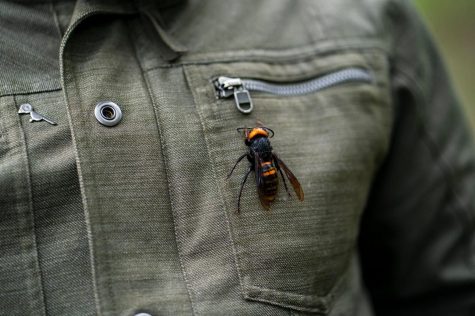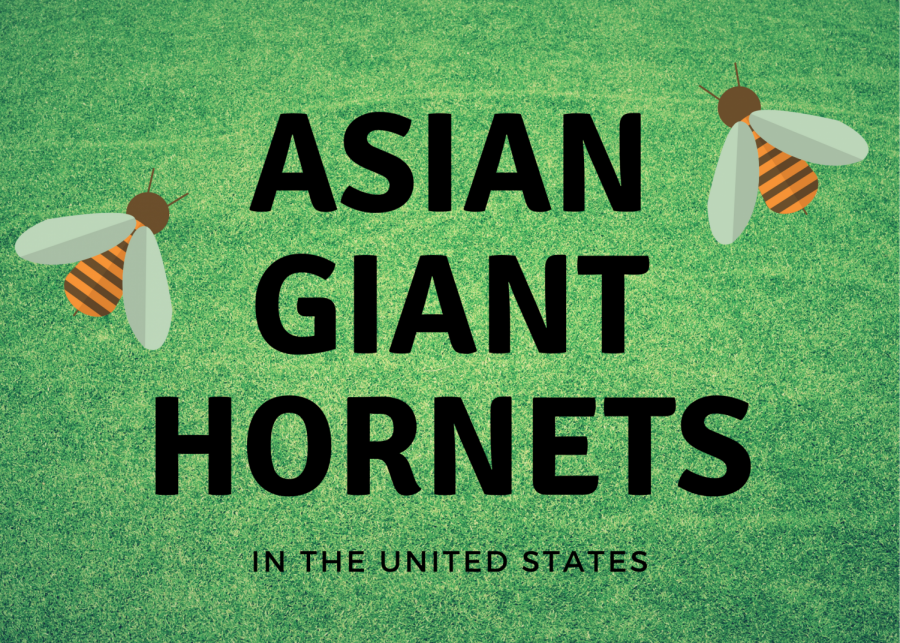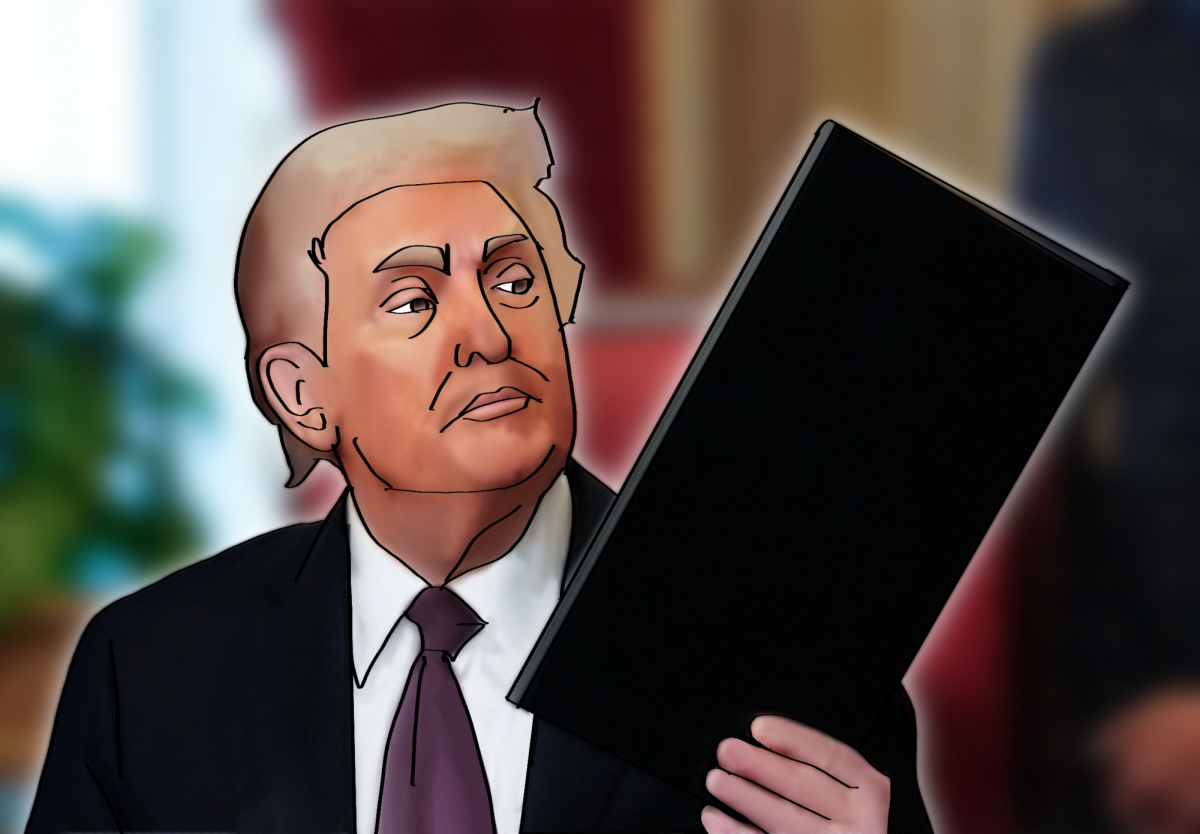Giant Deadly Asian Hornets Spotted in the United States
Asian giant hornets are known for being the largest hornets and have been spotted for the first time in the United States.
May 9, 2020
Spotted this past December in Blaine, WA were two “unusual” hornets. These huge insects were spotted late 2019, and with more investigation, it was declared that they were Asian giant hornets. Hornets are large members of the wasp family and Asian giant hornets are the biggest hornets in the world. They are known by their nickname “murder hornets” and can grow nearly two inches in length as stated by National Geographic.
These hornets are native to East Asia and Japan and the mystery of how they arrived to the United States is still unknown. Although researchers are not completely sure, they predict that similar to other invasive species, they were secretly transported here from their native country in international cargo, as stated by The Washington State Department of Agriculture (WSDA).

The Asian giant hornets stinger can be used repeatedly and deliver a toxin that is venomous.
Scientists’ main concern with the Asian Hornets is the possible spread outside of Washington State. With the use of their mandibles, shaped like spiked shark fins, they can easily wipe out a honeybee hive very quickly. The hornets’ decimation of honeybee colonies is a very serious issue. European honeybees, the most widespread commercial pollinators, are not able to defend themselves against these giant hornets, so they are a targeted predator. Attack on the bee colonies are planned out with deadly precision and it is said to occur in three phases.
“With everything that is going on it is terrifying that there is another thing that can kill humans. I don’t think there is a way to stop them from spreading because it is not scientifically made, its earth’s own creation and Mother Nature can’t be contained,” sophomore Amanda Perez-Romero said.
The first phase includes the hornets hunting individual bees from a hive that has been already chemically marked. The hornets will rip the bees to pieces with their large mandibles and take them back to their hive to feed their hornet larvae. The next phase is known as the “slaughter phase”, when dozens of hornets will attack the hive and massacre many of its bees. The last and final phase includes the hornets moving into the defeated hive, where they make it their new home and use it as a way to attack animals who wander close to the beehive, as said by The Washington State University (WSU).
“Well, I really feel bad for the bees like, I get bees are mean because they sting people but, come on we don’t need all of them gone. Washington state is on the pacific side of the country, hopefully, they come up with a way to exterminate them, because they don’t belong in the U.S. Plus they should find a vaccine for them if they can’t exterminate them or do something to stop them because their stingers can kill you,” junior Natalya Barbito said.
Humans, as well, can be targets, victims stating that it is like “hot metal” being pierced inside your skin. In Japan only, the hornets kill up to 50 people a year. Although someone might not be allergic, 50 or fewer stings can cause death due to kidney damage. The venom in the sting is known to be both “neurotoxic” and “necrotic” which means that it will attack the nervous system and destroy tissue. Beekeeping suits are not protective, as these hornets stingers can still pierce through the material.
“I worry people are already scared enough of insects for dubious reasons,” Chris Looney, an entomologist at the WSDA states. “It does seem to have gotten people’s attention. I just hope the sensational ‘murder hornet’ coverage helps us understand our ecosystems a little better.”
Scientists with the WSDA Pest Program are looking to find a way to find, trap, and get rid of the hornets in the area. With new reinforced beekeeping suits, they are hoping to collaborate with local beekeepers to stop the spread.
Although there is tension on how to control their spread, there should be no worry about these hornets coming to Florida. Entomologists state that the chances of the Asian giant hornets coming down here are very unlikely, and it would possibly take many years for them to be seen on the east coast. The University of Florida’s extension program also states that there is no evidence of any of the hornets being in Florida. Both British Columbia and Washington State are working on ways to control and eliminate them.











